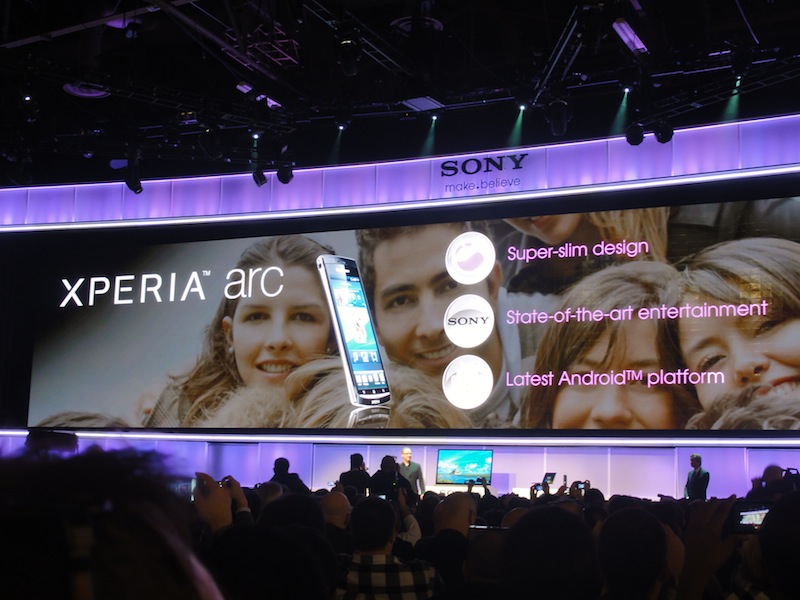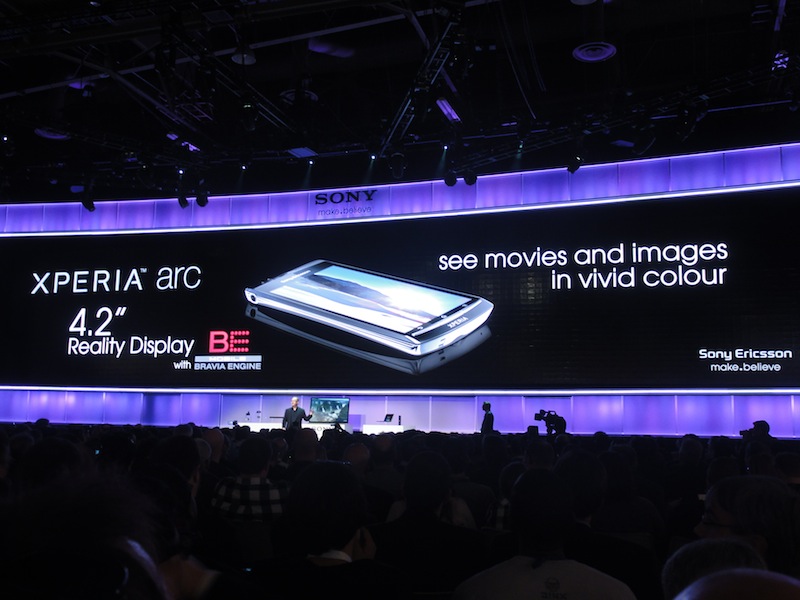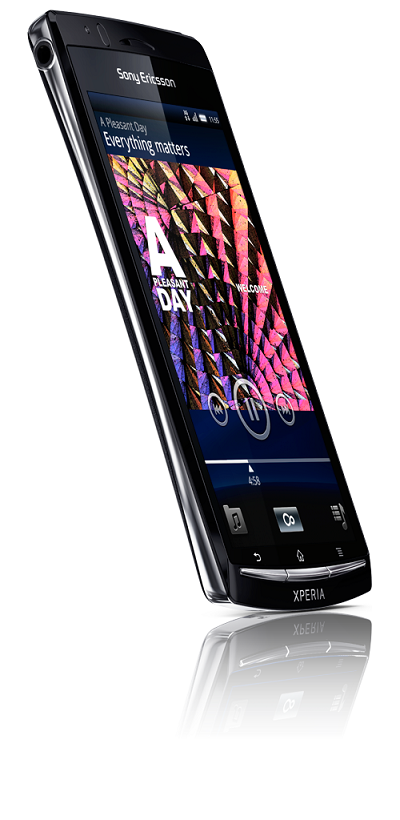It’s always humbling to see a company be willing to look back, reflect, and admit that they have made mistakes. It’s even better when the company has learned from the mistakes and is both willing and planning on doing better. With the Sony Ericsson Arc on the horizon, it seems that Sony Ericsson will indeed have a different attitude and offering during 2011.
“The first generation of handsets in our portfolio was about getting the capability out there”, Steve Walker (Acting) global head of marketing for Sony Ericsson.
During 2010, Sony released the Xperia X10, X10 Mini, X10 Mini Pro which have now surpassed 9 million shipped though they all shipped with outdated Android 1.6 and only recently saw an upgrade path to 2.1. This and a lack of marketing and strategy made it hard for Sony to stand out from the crowded Android market with the likes of HTC, Motorola and LG.
“It’s important to remember that 2010 was the first year for mass market Android handsets. Yes there had been one or two things out from HTC previously, but when we started to design our 2010 handsets in 2008, nobody really knew the dynamics of the Android smartphone market or even what the smartphone market was going to be”, explains Walker in respect of a range that hasn’t been too well received over the last 12 months.
“None of us could predict 2 years previously, to what extent users would switch into smartphones. None of us could really predict what would be more important and less important for consumers”.
Of course for me, being a former Apple employee, I dare say Apple saw it with the iPhone in 2007 which really ignited the transition for consumers from “dumb” phones to smartphones. Still, we are willing to give the company the benefit of the doubt. Especially with Android, an unproven OS at the time.
“We talked a lot about the platform and the software. The hardware was important but the hardware played second fiddle. What we think is different in 2011 is that consumer attention is swinging back to hardware once more. That’s not to say people aren’t focused on software, but that they are a little more in balance now”.
This thought process is somewhat troubling and yet to be expected. What has always made the iPhone stand out from other devices has been its great user interface. During the initial launch of the device, the iPhone never shipped with the highest specs, nor does the iPhone 4 today, though that also shouldn’t translate to it being underpowered. Still, it continues to be the number one smartphone of choice, in part due to its design but mostly because of its great OS. With handset makers at the mercy of Google and the OS updates that it releases, Sony and others have to use hardware specs to really stand apart from each other. The reason I pointed out that this was expected is that we have seen this in another technology cycle, the desktop. With Microsoft owning the entire segments, computer manufacturers turned to the power game, seeing who would offer the most power and hard drive space for the lowest price possible and we all know how that turned out. More and more power for the user, yes, but whose computing experience truly changed from 2002 to 2008? If anything, many would argue that it got worse. Walker went on,
“Last year we didn’t anticipate the strength of feeling that consumers would have towards the Android release. And again that was a learning experience of the first year of mass market Android smartphones”.
Still after having played with the Sony Ericsson Xperia X10 in the past and just finished having some hands on time with the Sony Ericsson Arc, I’m hopeful about the future for Sony. Though it’s not a evolutional leap, the Arc is a proper and thoughtful evolution.
“If we hadn’t done what we did with the X10 and the X10 minis we wouldn’t have been able to do what we’ve done here today”
[Via Pocket-Lint]




You must be logged in to post a comment.